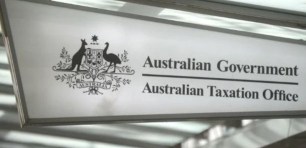
Australian Small Business and Family Enterprise Ombudsman Bruce Billson. Source: AAP/Tracey Nearmy
The small business ombudsman is backing calls for the tax office to better inform SMEs of their rights, after a report found half of tax professionals and business taxpayers think Australian Taxation Office (ATO) communications are ineffective.
On Thursday, the Inspector-General of Taxation and Taxation Ombudsman (IGTO) published an investigation into the effectiveness of ATO communications of taxpayers’ rights to complain, review and appeal decisions.
The investigation drew on survey data from 69 respondents, which the IGTO collected between August and September last year.
The vast majority of respondents were registered tax practitioners, including tax agents, BAS agents of tax financial advisors, followed by business taxpayers.
About half of the respondents said ATO communications were not effective when it came to providing information about a business’ rights to request an internal review, to lodge a formal complaint and to request an independent investigation by the ombudsman.
Of the respondents, 50% also said communications about a business’ rights to appeal to the Administrative Appeals Tribunal Small Business Taxation Division were not effective.
In response to the findings, Inspector-General of Taxation and Taxation Ombudsman Karen Payne has put forward six recommendations to make accurate information easily available to small businesses and their tax advisers.
Small Business and Family Enterprise Ombudsman Bruce Billson, who replaced Kate Carnell in March, said the report’s findings and recommendations are “really important for delivering a better and fairer tax system”.
“Tax issues are among the top concerns for small businesses, and it is critical for the tax office to step up as a modern revenue agency to help people as part of their charter,” Billson said.
Payne’s report found fewer than 1% of tax office staff had attended a training course to teach them how to tell taxpayers about their rights to dispute a decision over the past three years.
What’s more, 60% of taxpayers were unaware of, or had not used, the tax office’s complaints function.
For these reasons, Billson is strongly backing Payne’s recommendation to update the taxpayers’ charter so it includes an express right to be informed of rights to review, complain and appeal decisions.
The report also calls for the ATO to provide training to its officers, educating them of the various ways small businesses can challenge an ATO decision.
In the fourth recommendation, Payne encourages the ATO to improve its data collecting and reporting mechanisms in relation to tax dispute enquiries.
The final recommendations relate to making it easier for small businesses to find information about making complaints, and ensuring ATO staff encourage small businesses to make complaints where appropriate.
The ATO acknowledged the report in a formal statement, saying “effective communication of taxpayer rights is an extremely important aspect of our work”.
“[The] recommendations will assist us to further extend the work we are already undertaking to improve communication with taxpayers,” ATO acting chief law officer Kirsten Fish wrote.
Handpicked for you

Retired small business owners granted more than $85,000 tax relief in dispute with the ATO



COMMENTS
SmartCompany is committed to hosting lively discussions. Help us keep the conversation useful, interesting and welcoming. We aim to publish comments quickly in the interest of promoting robust conversation, but we’re a small team and we deploy filters to protect against legal risk. Occasionally your comment may be held up while it is being reviewed, but we’re working as fast as we can to keep the conversation rolling.
The SmartCompany comment section is members-only content. Please subscribe to leave a comment.
The SmartCompany comment section is members-only content. Please login to leave a comment.